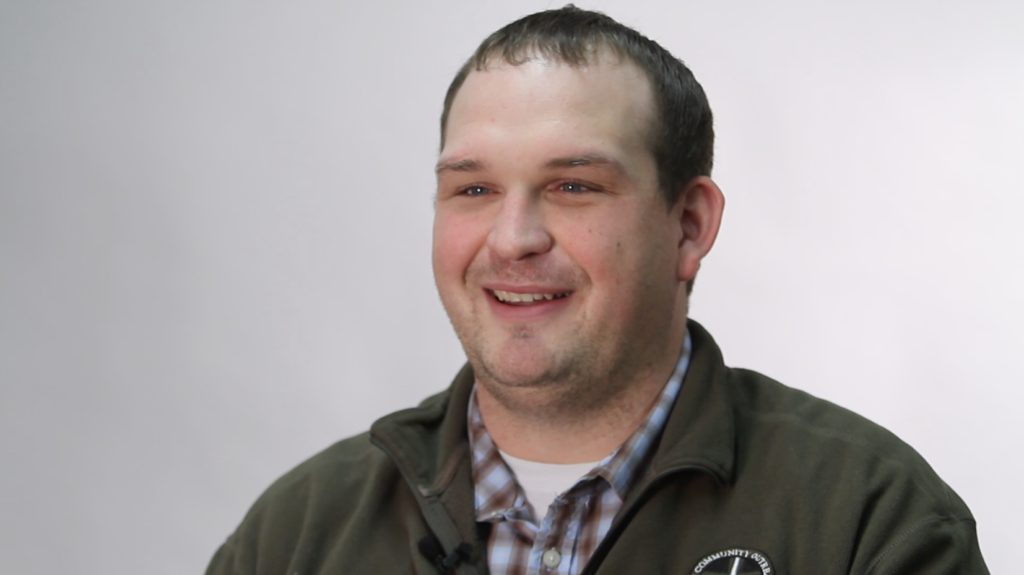The Mission
The Community Outreach is a nonprofit social work ministry that helps people who are struggling financially attain the highest level of self-sufficiency that they can. Through relationship building, mentoring, referrals and financial aid, we assist residents of Lincoln, McCook, Minnehaha and Turner counties.
The Introduction
My name is Dane Bloch, and I am the executive director of The Community Outreach. I came from a career in politics, and I know that there is an under-appreciation for social work, but having the opportunity to help people sustain self-sufficiency has been very rewarding.

The Organization
The Community Outreach has been around for over 35 years to assist people in the areas of housing, transportation and utility needs. We work specifically in areas of situational poverty, where our clients have endured a medical event, have recently lost their job, or are simply one paycheck away from not being able to put food on the table. Our clients are working hard to become self-sufficient, but something happened along the way.
When someone comes in, a caseworker will sit down with them for an hour and walk through their situation, figuring out what brought them to this situation. They will go through habits we can address, budgetary concerns and simply identify the major problems that we can then support them through and offer advice. We are a community organization that works closely with other fantastic local ministries to help those in need.
In some cases, we will offer financial assistance. In 2015, we provided up to $260,000 in direct financial aid, which might include a first month’s rent or deposit or utility cut-off prevention. But we are a one-time assistance program and we focus on being a good steward of our supporter’s resources, which means we will only help a client financially once a year. However, during our time with them, our focus is so much more on sustainable support, not just a one-time assistance. We focus on resources that we can refer them to in the community, what kind of information or mentorship we can provide, and empower them to live on their own. If they are in need of a job or are homeless, we give them as much community referral and information as we can while providing the support they need. The biggest principle we adhere to is that we don’t want to do something that someone can do for themselves. We are in the business of empowering, not enabling.
“The biggest principle we adhere to is that we don’t want to do something that someone can do for themselves. We are in the business of empowering, not enabling.”
When it comes to our transportation aid, we help our clients get to and from work when they begin a new job. When you start a new job, it’s possible you won’t get paid for three weeks. So getting to and from work in those three weeks can be a challenge, and if you can’t make it to work, what are the chances of you keeping that job? To help our clients sustain work, we provide 30-day bus passes or $20 gas vouchers if they use a car to get to work. We also have a program that fixes cars for those who drive extended miles for work, but the assistance is all for work-related transportation. Transportation is sometimes the key to a new employee sustaining an income, so we step in as much as needed.
We have two caseworkers on staff, who each see eight clients a day. Their schedules are always full back-to-back with appointments. Every Thursday morning, we take calls to make appointments for the following week. We start answering calls at 9 a.m., and by 9:15, the entire next week is already booked. So our biggest need is the ability to provide for more caseworkers. We believe that we meet about 75 percent of the need we see, so there is still another 25 percent out there that we could be meeting if we had the funding and the staff to do. We hope to get there soon.
Other than our two caseworkers, we have four other employees including myself, but we also have well over 400 volunteers who are involved in this ministry. They take part in our mentorship program, are donors through our Sharing Christmas Program or simply help with office tasks and administrative assistance. We cannot do this work without our volunteers.
In 2015, we helped 4,444 individuals, and in 2016, we worked with well over 7,000 clients. The surprising fact is we do not see the same person over and over again. As a matter of fact, our repeat rate is less than 15 percent. About 85 percent of the people who come into our office are first-time visitors, and if our work is impactful and they are truly seeking self-sufficiency, it will be the last time we see them, too. These are short but meaningful relationships that help people find the confidence and the resources they need to be successful.
The One
When I first began working for The Community Outreach four years ago, I met a young man named Shawn. He was 17 at the time and came home from school one day to find a note his mom had left him in their apartment. She told him she was leaving to live with her drug dealer and she likely would not be coming back. He only had 30 days to stay in their apartment. Shawn was able to get a job at a pizza place, but he eventually had to move out and moved to a park in Sheldon, Iowa, where he lived out of a custodial closet near the restrooms. He would take his showers in the bathroom sinks but still made it to school every morning and graduated from high school. After graduation, a friend offered him a gift to move to Sioux Falls and find work. That’s when we met Shawn.
It was January, and ironically, he came into our doors because he needed a quart of oil for his car. As soon as the caseworker started asking questions, we quickly realized that he was living out of his car in a church parking lot and his engine had burned out. We immediately connected him with affordable housing and we helped him get a job as a groundskeeper at the University of Sioux Falls. I tell this story because his mentor taught him such great work ethic and budgeting skills and was a true support system for him during such a dismal time. Today, Shawn lives in Des Moines, works at an auto tech store and makes great money. He’s not in danger of being homeless anymore, and he can really provide for himself.


